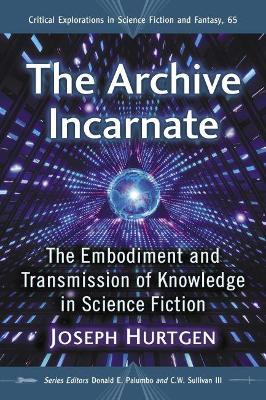Critical Explorations in Science Fiction and Fantasy
1 total work
We live in an information economy, a vast archive of data ever at our fingertips. In the pages of science fiction, powerful entities-governments and corporations-seek to use this archive to control society, enforcing conformity or turning citizens into passive consumers. Opposing them are protagonists fighting to liberate the collective mind from those who would enforce top-down control.
Archival technology and its depictions in science fiction have developed dramatically since the 1950s. Ray Bradbury discusses archives in terms of books and television media, Margaret Atwood in terms of magazines and journaling. William Gibson focused on technofuturistic cyberspace and brain-to-computer prosthetics, Bruce Sterling on genetics and society as an archive of social practices. Neal Stephenson imagined post-cyberpunk matrix space and interactive primers. As the archive is altered, so too are the humans that interact with ever-advancing technology.
Archival technology and its depictions in science fiction have developed dramatically since the 1950s. Ray Bradbury discusses archives in terms of books and television media, Margaret Atwood in terms of magazines and journaling. William Gibson focused on technofuturistic cyberspace and brain-to-computer prosthetics, Bruce Sterling on genetics and society as an archive of social practices. Neal Stephenson imagined post-cyberpunk matrix space and interactive primers. As the archive is altered, so too are the humans that interact with ever-advancing technology.
